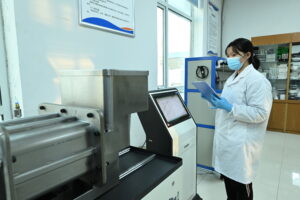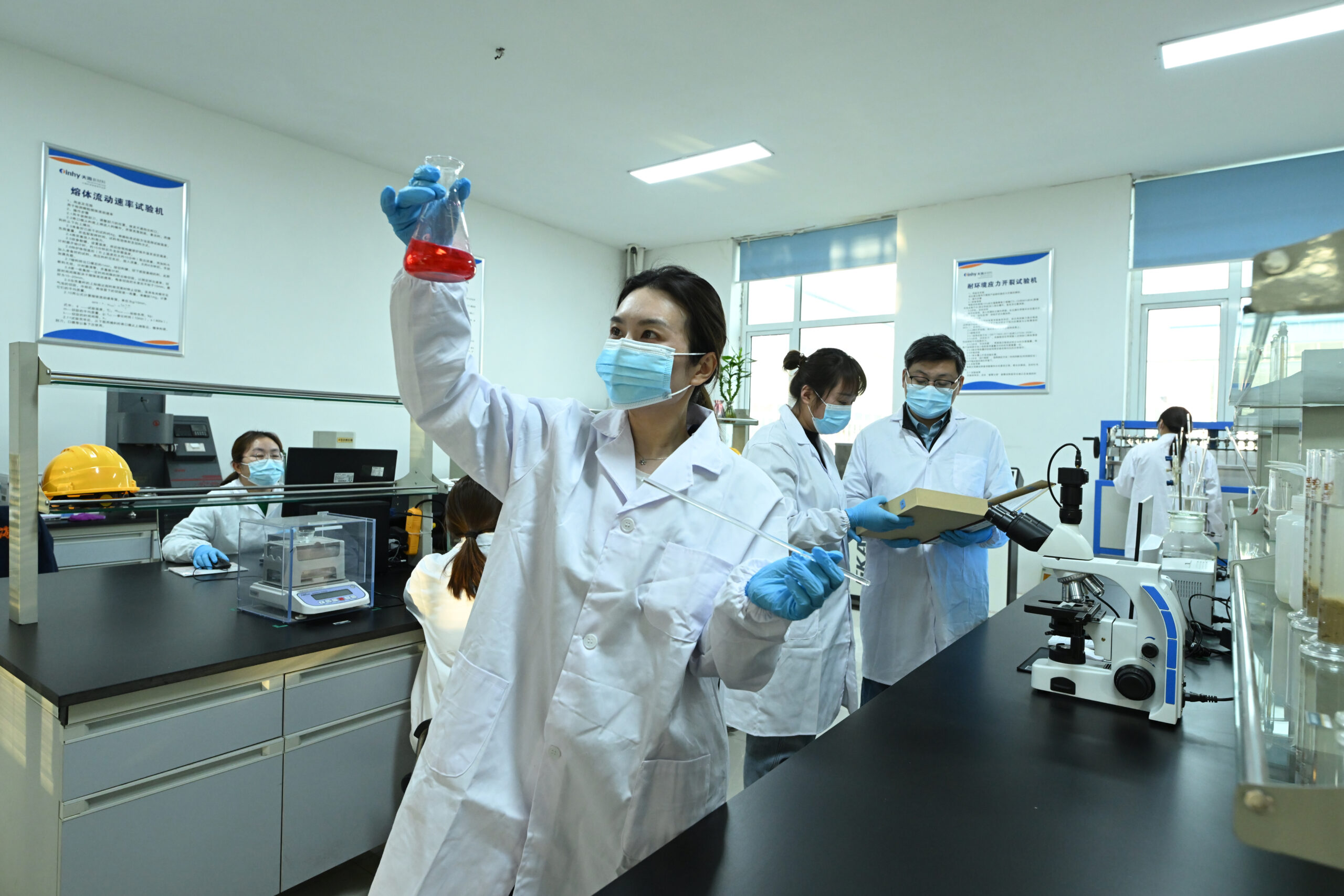Description of geomembrane quality indicators

Geomembrane CBR Bursting Strength
CBR bursting strength refers to the maximum load per unit area that the soil sample receives when it reaches the specified damage standard under the action of heavy load. CBR (California Bearing Ratio) test is one of the test methods used to evaluate soil bearing capacity.
CBR bursting strength is usually expressed as a percentage, that is, the ratio of the nominal stable value under standard test conditions to the dry weight of the sample. For example, a soil sample with a CBR bursting strength of 80% means that the maximum load it receives when it reaches the specified failure standard in the CBR test is 80% of the dry weight of the sample.
The value of CBR bursting strength can reflect the compressive performance of the soil and its scope of application. Higher CBR bursting strength means that the soil has a better bearing capacity, which is suitable for engineering projects bearing larger loads. A lower CBR burst strength indicates poor bearing capacity of the soil, requiring corresponding reinforcement measures or avoiding significant engineering construction on it.
It should be noted that the bursting strength of CBR is determined through experiments, and the requirements of different regions and engineering projects may be different. Therefore, in actual engineering, soil CBR tests should be carried out according to specific conditions and relevant standards and specifications, and other factors should be considered comprehensively to evaluate the soil’s bearing capacity and suitable engineering applications.

Geomembrane Carbon Black Dispersion
Carbon black dispersibility refers to the degree of uniform dispersion or stability of carbon black in a liquid medium. Due to carbon black’s high specific surface area and adsorptive properties, it tends to aggregate in liquids to form clumps or deposits. Therefore, in order to fully exert the characteristics of carbon black, it needs to be effectively dispersed in a liquid.
The dispersibility of carbon black is very important for some application fields, such as rubber, ink, coating and so on. Good carbon black dispersibility can ensure that carbon black particles are evenly dispersed and stably suspended in the liquid, thereby improving the performance and uniformity of the material.
Factors affecting the dispersibility of carbon black include the type of carbon black, surface properties, selection of additives, and dispersion process. Common dispersion methods include mechanical shearing, ultrasonic treatment, use of dispersants, etc. Through proper dispersion process and selection of additives, the dispersibility of carbon black can be improved, so that it can be better used in various fields.
It should be noted that different application fields may have different requirements for carbon black dispersion. Therefore, in specific applications, it is very important to select the appropriate carbon black type and dispersion process according to the needs.

Geomembrane Tensile Yield Strength
Tensile yield strength refers to the maximum stress or stress value that a material can withstand when it reaches the yield point under tensile loading conditions. It is an important mechanical property parameter of the material, which is used to evaluate the tensile strength and plastic deformation ability of the material under the tensile load.
The tensile yield strength of a material is usually determined by a standard tensile test. In a tensile test, the material is gradually plastically deformed by applying a gradually increasing tensile load while maintaining the geometric dimensions of the specimen until significant plastic deformation occurs and the material fails. The yield point is a specific point on the stress-strain curve at which a material begins to undergo nonlinear deformation and observable plastic deformation.
Tensile yield strength is one of the key parameters to measure the tensile properties of materials. Higher tensile yield strength means that the material has stronger tensile properties and rigidity, and can withstand greater tensile loads without failure. For fields such as structural engineering, material selection and design, tensile yield strength is an important reference index, which helps to identify suitable materials and evaluate their reliability and safety in practical applications.
It is important to note that different materials have different tensile yield strengths. Common engineering materials such as metals, plastics, composite materials, etc. have their own specific range of tensile yield strength. In addition, the tensile yield strength is also affected by factors such as the structure of the material, the state of heat treatment, and the loading rate. Therefore, in specific applications, it is necessary to consider these factors and select appropriate materials to meet specific engineering needs.
[wpforms id=”40″]
Author

Founded in 2002, Tinhy's team focuses on the manufacturing, marketing, installation, application and research and development of geosynthetic materials.
View all posts





